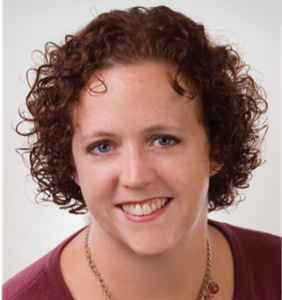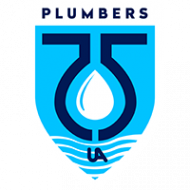Our CareATC Staff

Dr. JoAnne Hill, MD
I am a Family Physician with the UA-75 Plumbers Union Germantown Clinic. In September 2020, I left my practice with Froedtert and the Medical College of WI after 22 years to join CareATC and the Germantown Clinic. CareATC creates primary care practices which return the focus to the patient rather than volume driven schedules and protocols. I couldn’t be happier to be here and look forward to meeting you!

Maggie Sonnemann, NP
My name is Maggie Sonnemann and I am the Nurse Practitioner and Health Center Manager for both Greenfield and Germantown clinics. I want to start off by saying thank you and express how much i have enjoyed my first few months with CareATC. It has been a true honor to get to know so many of you. Having practiced in emergency medicine for so many years, I truly believe this healthcare framework is the absolute best way to obtain amazing healthcare. The easy access, pharmacy on site and CareATC’s focus on promoting wellness and preventing disease is like nothing I have experience and it is all without a deductible or copay. While not a walk-in clinic, we have same day availability and encourage you to call our clinics directly to schedule appointments.

Julianna Doniere, MD, MPH
Julianna M. Doniere, MD, MPH, known as Julie, is a dedicated physician with over 25 years of experience. She earned her MD from the Medical College of Ohio, MPH from the University of Wisconsin-Milwaukee Zilber School of Public Health, and is certified by the American Board of Emergency Medicine (ABEM).
Julie is passionate about improving the lives of her patients, addressing both their physical and mental health concerns through meaningful conversations and collaborative goal-setting. In her free time, Julie enjoys baking, gardening, water skiing, and spending time with her family.
Care ATC Clinics
(800) 993-8244
CAREATC.COM/PLUMBERS75
Schedule an Appointment with the CAREATC PHONE APP
CARE ATC Germantown Clinic
W177 N9856 Rivercrest Dr, 250
Germantown, WI 53022
M – Th 8:00am – 12:00pm / 1:00pm – 5:00pm
F 7:00am – 11:00am / 12:00pm – 4:00pm
2nd Saturday Every Month
7:00am – 11:00am
CARE ATC Greenfield Clinic
4600 W Loomis Rd, 200
Greenfield, WI 53220
M – Th 9:30am – 1:00pm / 2:00pm – 6:30pm
F 7:00am – 11:30am / 12:30pm – 4:00pm
4th Saturday Every Month
7:00am – 11:00am
Hypertension: How high is too high and why does it matter? - Dr. Joanne Hill, MD
What is hypertension? In 2017, the definitions of hypertension were updated by the American College of Cardiology and the American Heart Association to the following:
| Blood Pressure Category | Systolic Blood Pressure | Diastolic Blood Pressure |
| Normal | <120 mmHg | <80 mmHg |
| Elevated | 120-129 mmHg | <80 mmHg |
| Hypertension | ||
| Stage 1 | 130-139 mmHg | 80-89 mmHg |
| Stage 2 | ≥ 140 mmHg | ≥ 90 mmHg |
Why all the fuss when I feel fine? Most people do not feel symptoms of higher blood pressure. However, your arteries and organs are still being affected. This is why hypertension is referred to as the “silent killer”. Hypertension increases the pressure of blood flowing through your arteries which can damage the cells along the inner lining of your arteries. These damaged arteries are more prone to collect the fat that enters your bloodstream from your diet. Subsequently, the arteries become less elastic and more narrowed. The Systolic blood pressure is the pressure in your arteries when your heart beats. The Diastolic blood pressure is the pressure in your arteries between heart beats.
How does this affect my health? Damaged arteries are more likely to form weakened areas which can result in an aneurysm or bulging artery. A ruptured aneurysm is often life threatening. The damaged and narrowed arteries also affect blood flow in general but most concerning are the effects on your brain, heart, kidneys, and eyes increasing your risk of stroke, heart attack, kidney failure, and blindness. Furthermore, when your heart is consistently beating against higher pressure, like any muscle working harder, it enlarges. This leads to heart failure which affects over 6 million people in the US.
What can I do to lower my blood pressure? Lifestyle changes can lower your blood pressure and include the following: dietary salt restriction (less than ~2000 mg sodium per day); weight loss (every couple of pounds makes a difference); exercising (aerobic, dynamic resistance, isometric resistance) for ~150 minutes per week; DASH (Dietary Approach to Stop Hypertension) diet which is high in fruits, vegetables, whole grains, chicken, fish, nuts; limited alcohol intake (no more than 2 alcoholic drinks per day for men and 1 alcoholic drink per day for women).
Do I need medication? The decision to start medication to treat blood pressure is very individualized and is best discussed during an office visit. The diagnosis of hypertension generally requires abnormal blood pressure readings on more than one occasion and ideally includes readings taken at home using an automated cuff with verified accuracy. An individual’s other risk factors are also considered including the presence of diabetes, tobacco use, known heart or kidney disease, age, family history, etc.
What should I do now? You may schedule an appointment at a CareATC clinic (Germantown and Greenfield) to discuss your health and risk factors and develop an individualized plan to keep your health on track! I look forward to meeting you!
Should I get the Covid-19 vaccine when it is available? Is it safe? - Dr. Joanne Hill, MD
Currently, there are two vaccines approved by the Food and Drug Administration (FDA) for Covid-19: Moderna and Pfizer-BioNTech. These are both mRNA vaccines and require two doses (28 and 21 days apart respectively). There are also 3 other vaccines which are currently in large scale studies and may be available in the near future (AstraZeneca, Janssen, Novavax).
These vaccines do not contain the Covid virus and therefore cannot give you Covid. You may, however, experience side effects including achiness, fatigue, chills, headaches. Allergic reaction to the vaccine is very rare but you should schedule an appointment with me prior to receiving the vaccine if you have had a serious or immediate allergic reaction to any vaccine in the past. The Covid-19 vaccines do not contain egg nor preservatives. These vaccines are 94-95% effective at preventing a Covid-19 infection.
You may be concerned about how quickly the vaccines were created and distributed in terms of safety data. I shared this concern initially. Vaccine development typically took years, sometimes decades. Previously, the fastest vaccine to be developed was for mumps which took four years. So, how was the Covid-19 vaccine created within one year? There are several reasons.
This virus was found to be very genetically similar to an older virus that caused SARS. Researchers began working on a vaccine for the SARS virus after its outbreak in 2003. Since SARS was ultimately contained, funding for vaccine development halted. However, scientists were able to identify new strategies and targets for a potential vaccine and that information was utilized to develop the new Covid-19 vaccines.
The Covid-19 vaccines use a newer technology called messenger RNA (mRNA). Most prior vaccines required a LOT of virus to be produced in order to study and alter it. mRNA vaccines do not rely on reproduction of the live virus, but instead the mRNA can be produced in the lab. This messenger RNA is a temporary code that directs cellular activity. It cannot alter your own DNA. Rather, the vaccine teaches your immune system to recognize the spike protein on the virus and prevent it from replicating its own mRNA in your cells.
Finally, there is unprecedented worldwide financial support for the development of Covid-19 vaccines. Therefore, hundreds of potential vaccines are being studied simultaneously. If one vaccine had lower efficacy or any safety concerns, it was taken out of clinical trials.
This was a long answer to the original questions: Should I get the Covid-19 vaccine? I strongly recommend getting the vaccine when it is available to you; my staff and I were excited to get our vaccines. We hope to receive a shipment of the Moderna vaccine relatively soon and will begin administering it to individuals 65 years or older.
Consider scheduling a telephone, zoom, or in-person visit with me. I am happy to further discuss Covid questions or concerns in addition to other chronic, acute, or preventive health issues. I truly look forward to getting to know you and helping you obtain/maintain the best health possible.

